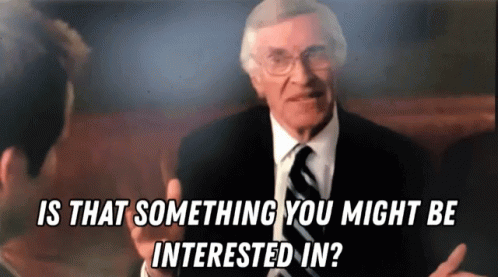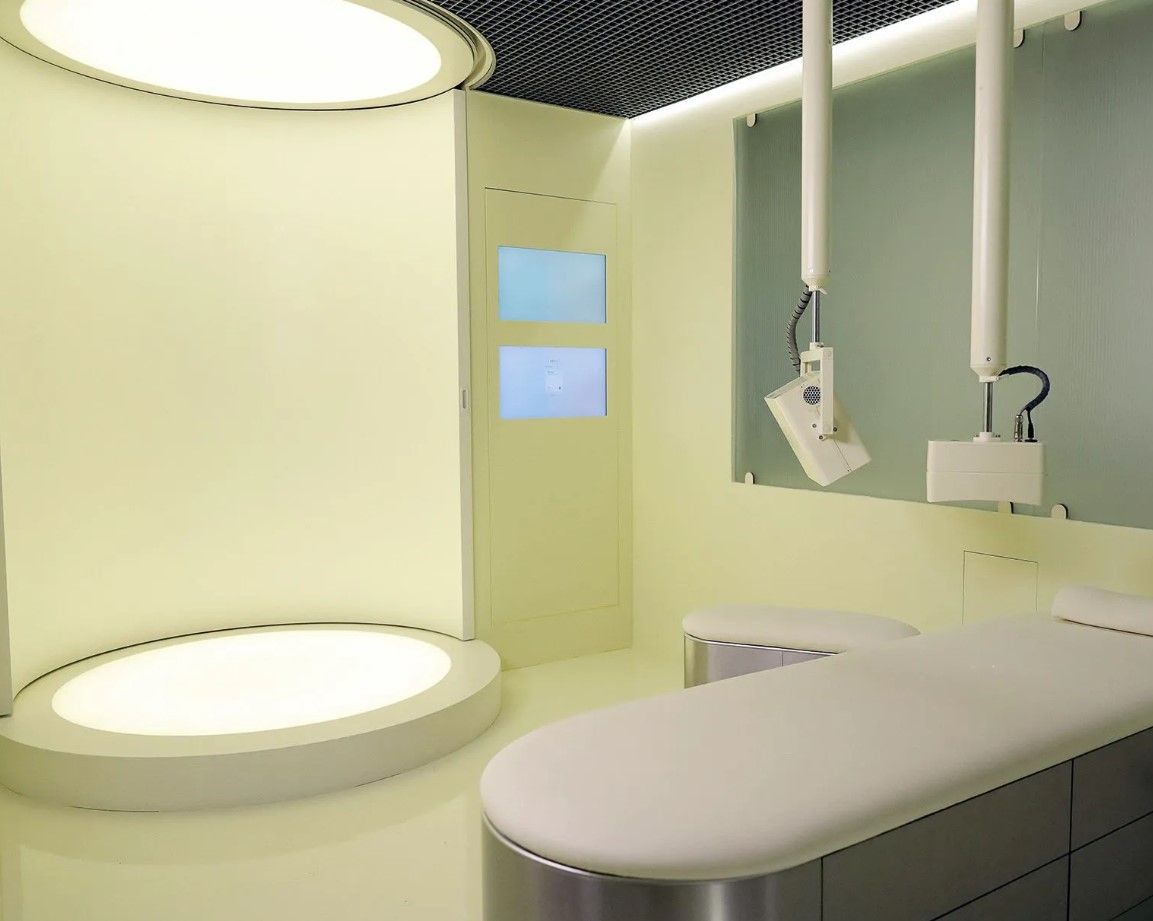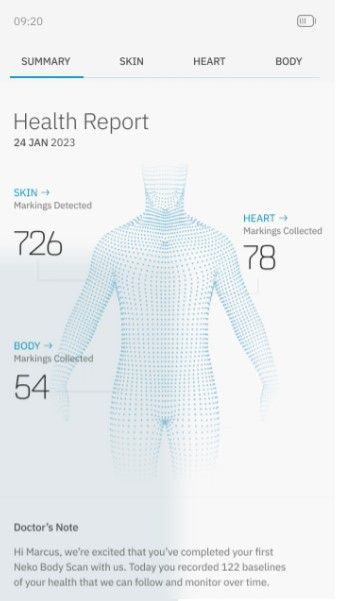
👩⚕️ If we are to move from sick care to healthcare, someone needs to lead the way
Is Neko Health the battering ram needed to truly transform sick care into actual healthcare? I've visited them, looked around, and talked to one of the founders, Hjalmar Nilsonne.
Share this story!
It feels shaky. Detecting skin cancer has several weak points.
First, you need to identify a birthmark on your body and remember if it's new, if it looks dangerous, or if it has changed in appearance. Then you need to get around to booking an appointment to have it checked. There, a doctor will closely inspect it and immediately determine if it's harmless, or if it needs further examination, possibly to be removed and analyzed.
Even though these doctors are often impressively skilled, research tells us how uncertain such assessments can be (see for example, Daniel Kahneman & Amos Tversky). Since it concerns skin cancer and one's life, the consequences of a misdiagnosis are significant.
But what if I told you there's an alternative: Where your whole body is scanned, all birthmarks documented, and analyzed by AI against a database of images of millions of moles. And the next time you return, even minor changes in your birthmarks can be detected and analyzed.

Neko Health
That's what Neko Health offers. It's Spotify founder Daniel Ek's health initiative. Leading it is his partner, Hjalmar Nilsonne, who has previously run the energy startup Watty, among other things. They reached out after reading my vision for Swedish healthcare, "The Health Revolution is Just Around the Corner", which resembles their own vision.
Mole scanning is what has become most known and in demand, but Neko Health offers more than that, and their ambitions are vast.
To understand their goals, we need to zoom out and view the current system from a distance.
As long as humans have had doctors in some form, access to them has been limited. Whether it was a shaman, a wise woman, a witch doctor, or today's modern doctors.
Thanks to AI, this can now change. We're beginning to see the outlines of an AI doctor with access to all the world's medical knowledge and unlimited time just for you.
For such an AI doctor to be maximally effective, it needs data. The more data in the form of DNA, blood tests, body scans, diet, exercise, weight, sleep, and pulse - the better. It can then learn to understand your specific body, and assist you with diet, physical activity, and alert you if it detects something that is wrong.
Achieving this would be nothing short of a revolution. But it demands that healthcare uses this information and of course, that it's initially collected. That's a massive task.

Someone needs to be the battering ram
The health and medical care system, regardless of country, is a giant. It doesn't change direction easily. Especially as there are few incentives built into the system to do so.
It's unreasonable to believe the system will change itself. Therefore, someone needs to lead the way, show the path, and break through. Both to inspire and force change.
Such a battering ram is Neko Health.
They've built the equipment that scans your skin, veins, cardiovascular system, and body, along with artificial intelligence that analyzes the collected data. They've added the startup world's sense of customer experience and a smooth process. Naturally, it's doctors and other healthcare professionals who look after the customers and guide them through the examination.

But that's just the start. They want to add data from wearables like watches and rings, DNA tests, blood tests, and other relevant information.
If they succeed, we'll have an alternative to the old, outdated health and medical care. One that can both inspire and force change.
Difficult, but possible
About twenty years ago, Spotify changed an outdated and backward music industry. The industry tried to stop progress by criminalizing millions of music lovers for downloading songs. Daniel Ek and Martin Lorentzon believed people would pay if they were offered an alternative with a good customer experience and a smooth process. They were right.
Transforming healthcare is a much harder task, but the success of Spotify has given Daniel Ek valuable experience and the financial means to be sufficiently long-term to have a chance of success.
Mathias Sundin
The Angry Optimist
By becoming a premium supporter, you help in the creation and sharing of fact-based optimistic news all over the world.


